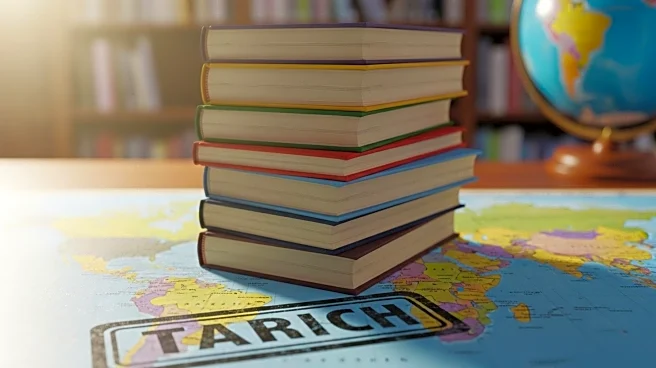What's Happening?
The Trump administration's tariff policies are impacting U.S. libraries, particularly those involved in international book exchanges. The elimination of the de minimis exemption, which allowed imports under $800 to be tariff-free, has disrupted the flow of books between libraries globally. Libraries, including university libraries, have halted borrowing to and from the U.S., affecting academic progress. Librarians express concern over the limitations on access to international resources, which have historically supported academia.
Why It's Important?
The tariffs pose challenges for libraries, limiting access to international materials and potentially hindering academic progress. Libraries play a crucial role in education and research, and disruptions in book exchanges can affect scholarly work and resource availability. The policy reflects broader tensions in international trade and its impact on cultural and educational institutions. The situation highlights the need for libraries to adapt to changing trade policies and find alternative solutions for resource sharing.
Beyond the Headlines
The impact on libraries is part of a larger trend of cultural and educational institutions facing challenges due to trade policies. The disruption of international book exchanges underscores the interconnectedness of global academic networks and the importance of maintaining access to diverse resources. The situation may prompt libraries to explore digital solutions and partnerships to mitigate the effects of tariffs.











